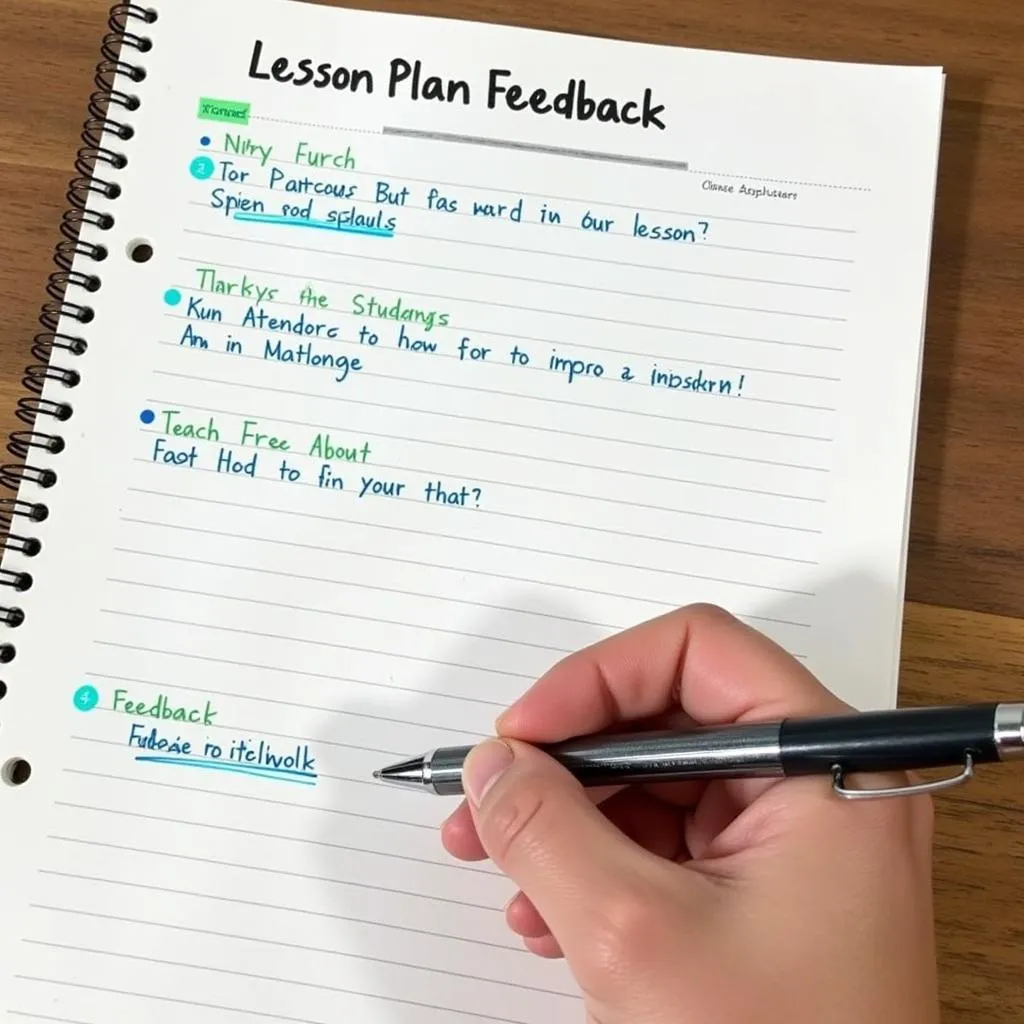“Teaching is like planting a tree; it requires meticulous care to bear sweet fruit.” – This proverb highlights the necessity of reflecting on each lesson. For elementary lesson plans, recording experiences and areas for improvement helps teachers enhance teaching effectiveness and impart knowledge more effectively to students.
Why Reflect on Lesson Plans?
Benefits of Lesson Plan Reflection
Reflecting on lesson plans offers numerous benefits for teachers, helping them:
- Identify Strengths and Weaknesses: A lesson plan is a detailed blueprint for a lesson. Reflection helps teachers recognize effective teaching segments and areas needing improvement for future lessons to be more impactful.
- Enhance Communication Skills: By noting student reactions and challenging questions, teachers can adjust their teaching methods and use age-appropriate language, leading to more effective knowledge transfer.
- Save Time: Instead of racking their brains to rethink each lesson, reflection saves teachers time, allowing them to focus on key issues and improve teaching quality.
- Improve Pedagogical Skills: Lesson plan reflection is an effective way for teachers to self-assess, accurately evaluate their teaching abilities, and discover suitable methods to enhance their pedagogical skills.
Insights from Renowned Educators
“A good teacher is someone who always learns and seeks new teaching methods.” – Prof. Dr. Nguyen Van Thinh, Hanoi National University of Education.
According to education experts, reflecting on lesson plans is a crucial secret for teachers to improve their professional skills and create engaging, student- привлекательные lessons.
How to Effectively Reflect on Lesson Plans
1. Prepare Before Teaching
- Create a Detailed Plan: Clearly define objectives, content, teaching methods, and teaching aids to ensure an effective lesson.
- Prepare Materials: Gather and study resources, prepare lesson content, discussion questions, illustrative examples, etc., to make the lesson comprehensive, scientific, and easy to understand.
2. Reflect During the Lesson
- Note Areas for Improvement: During teaching, teachers should note ineffective teaching segments, student questions, student reactions, etc., to learn from for subsequent lessons.
- Use a Notepad: Teachers can use a notepad to jot down ideas, reminders, and areas for improvement throughout the lesson.
3. Analyze After Teaching
- Evaluate Lesson Effectiveness: After teaching, teachers should take time to self-assess the lesson’s effectiveness, strengths, weaknesses, and areas for improvement.
- Record Experiences: Record valuable experiences from each lesson, lessons learned from successes and failures.
Helpful Tips for Lesson Plan Reflection
1. Utilize Support Tools
- Notebook: Teachers can use a notebook to record ideas, reminders, and areas for improvement.
- Digital Note-Taking Apps: Use digital note-taking apps to record ideas, reminders, and student reactions.
2. Share Experiences with Colleagues
- Exchange with Colleagues: Share valuable experiences with colleagues, exchange ideas, learn from each other, and improve teaching effectiveness together.
3. Apply Lessons Learned
- Practice Regularly: Apply the lessons learned to actual teaching, improve teaching methods, and enhance teaching effectiveness.
 Notebook showing "Elementary Lesson Plan Reflection" notes
Notebook showing "Elementary Lesson Plan Reflection" notes
Conclusion
“Teaching is a journey of continuous learning, cultivation, and self-improvement.” – Meritorious Teacher Nguyen Ngoc Ky.
Remember, reflecting on lesson plans is a crucial secret for teachers to enhance teaching effectiveness and create engaging, student- привлекательные lessons. Take the time to record valuable experiences, cultivate pedagogical skills, to become a skilled teacher, effectively impart knowledge, and contribute to improving the quality of Vietnamese education.
Do you have any questions about how to reflect on lesson plans? Leave a comment below, and we will answer all your questions.

